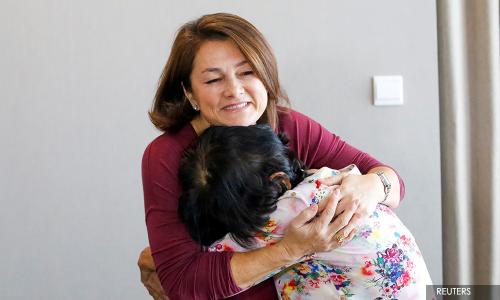After four decades, a Vietnamese woman reunites with the daughter airlifted to America
They wondered about each other over the decades, the Vietnamese mother constantly and more acutely than the 3-year-old daughter she gave up in April 1975, just before Saigon fell to communist North Vietnam.
As US troops exited Vietnam after 20 years of conflict, thousands of South Vietnamese who had fought alongside them or otherwise opposed the North were terrified of what lay ahead. As some fled, more than 3,000 children were flown to new families overseas in what became known as ‘Operation Babylift’.
Among those infants was Leigh Mai Boughton Small - the daughter of a Vietnamese maid and a G.I. - who was airlifted out of the humid chaos of Vietnam for a new life and adopted middle-class family in New England.
Leigh Mai and her birth mother may have spent the rest of their lives wondering about each other - except for the mother’s persistence, the daughter’s decision to try a DNA website, and help from a Vietnamese Good Samaritan.
After years of trying to find each other, Leigh Mai, now 47, met her birth mother Nguyen thi Dep (below) on Nov 17 in Ho Chi Minh City, a reunion exclusively filmed by Reuters TV.
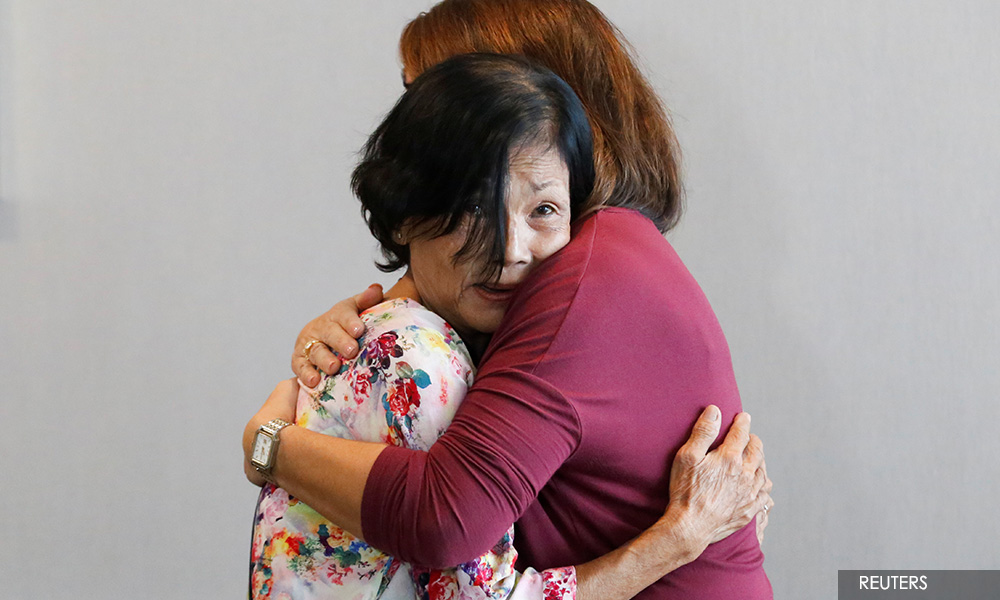
It began with awkward hugs. Dep, 70, was afraid her daughter would be disappointed in her - the beautiful young mother had turned into “an old and gray woman, ugly and skinny,” she said afterward. Leigh Mai, accompanied by her husband Jeff and three children, was eager to reassure her mother she harboured no resentment about being sent away.
Leigh Mai gave Dep a locket and a scrapbook of her childhood. Dep gave her grandchildren traditional red envelopes containing cash. They hugged, cried and laughed.
What hit Leigh Mai the most was realising it wasn’t just a mother she had lost, but a Vietnamese family “and that there was love there... and aunts and uncles and that never kind of crossed my mind.”
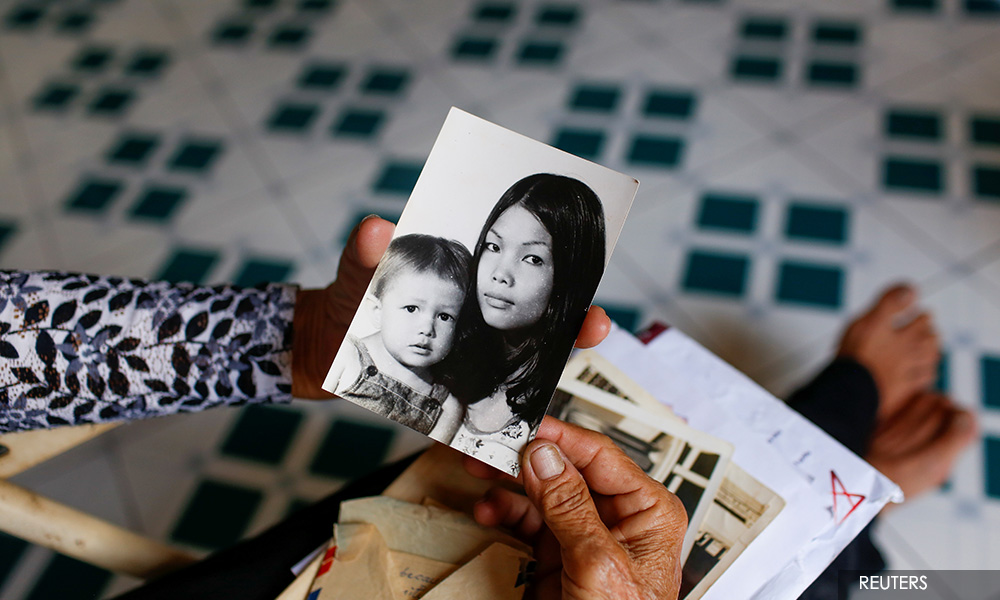
She also could not comprehend how hard it must have been for Dep all those years ago when Dep had struggled with the decision to hastily send her daughter overseas to an unknown fate.
Saigon’s chaotic evacuation
A feeling of panic was rife in Saigon as the North Vietnamese Army and their Southern wing, the Viet Cong, approached the city in April 1975. The evacuation of American civilian and military personnel, along with tens of thousands of South Vietnamese civilians, was underway.
Dep had worked as a maid and then telephone operator at a US army barracks in Saigon, where she met Leigh Mai’s father, Joe O’Neal, she recalled in an interview before the reunion at her home in Thu Duc, on the outskirts of what is now called Ho Chi Minh City.
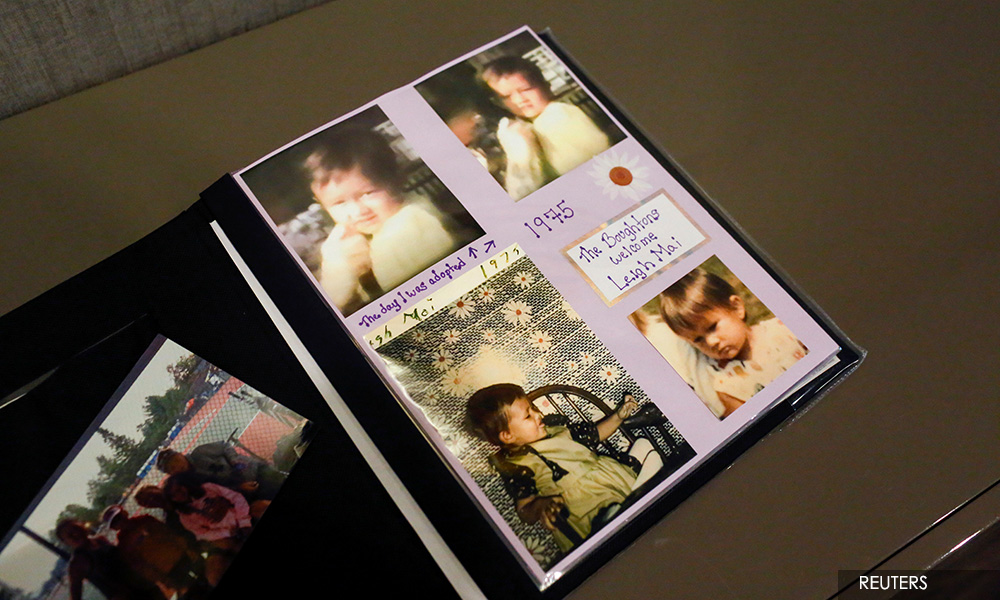
She lost touch with O’Neal after he was sent home not long after the Paris Peace Accords were signed in January 1973. The little girl, who the mother had named Phuong Mai, was nearly a year old then. A long letter she wrote to O’Neal was returned. He was married and had a family in South Carolina, she later learned.
Dep’s American and Vietnamese friends told her to get her daughter on an Operation Babylift flight, telling her ‘what if they come and kill her?’
“I panicked and decided to send Mai away. It took only a week from when I filed her paperwork till when the plane took her away,” said Dep.
Many of the children who were flown to new homes in Operation Babylift were orphans. Others were sent abroad in hopes they would have a better life - or that they might be reunited soon after the chaos of the war. But Vietnam and the United States, where most of the children were taken, did not normalise ties until 1995, dashing those hopes.
The last time Dep saw her daughter, at the orphanage where she was awaiting her flight, she told Leigh Mai she had “to go wash my face,” intending to leave by the back door. “But then her instinct told her something, and she yelled ‘Mom don’t leave’. To be honest, at that moment all I wanted was to turn around and take her home,” Dep said. Instead, she walked from the airport to the city center “and told my boss that I let her go.”
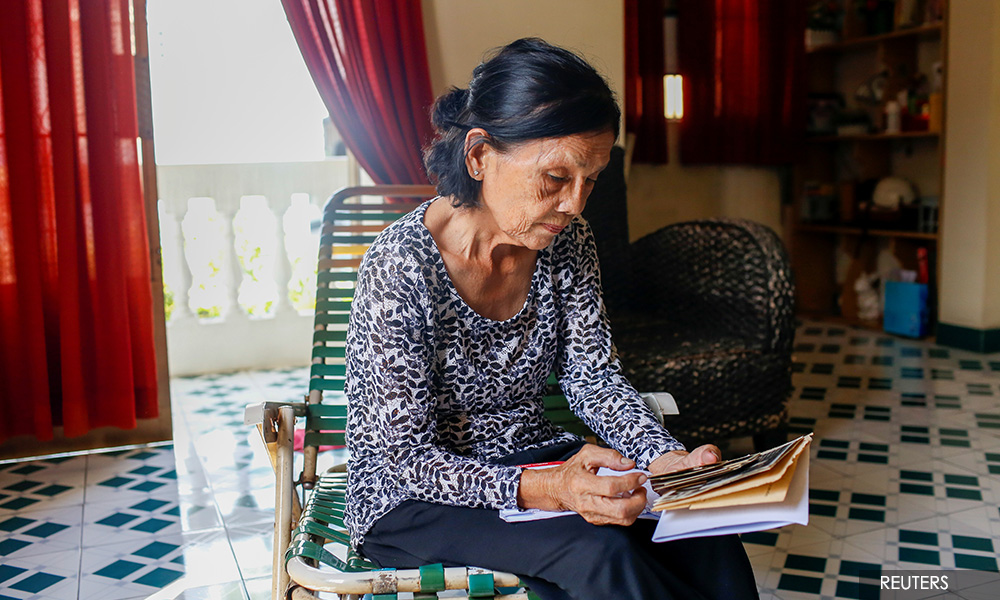
She thought about what she had done “until it felt like my brain shattered.” She cried “every night for months. My father didn’t speak to me for two months.” She took “all sorts of jobs” after that to make a living. “Life pushed me around.”
But Dep never gave up hope of finding Leigh Mai. She contacted various intermediaries over the years and even wrote a letter to the late US Senator Edward Kennedy, who chaired a Senate subcommittee hearing on Operation Babylift in 1975. She said she never got a reply.
The good life
Leigh Mai (below) knew from an early age she was adopted and half-Vietnamese but no one had any idea who her parents were. The children of Operation Babylift arrived with little or no documentation.
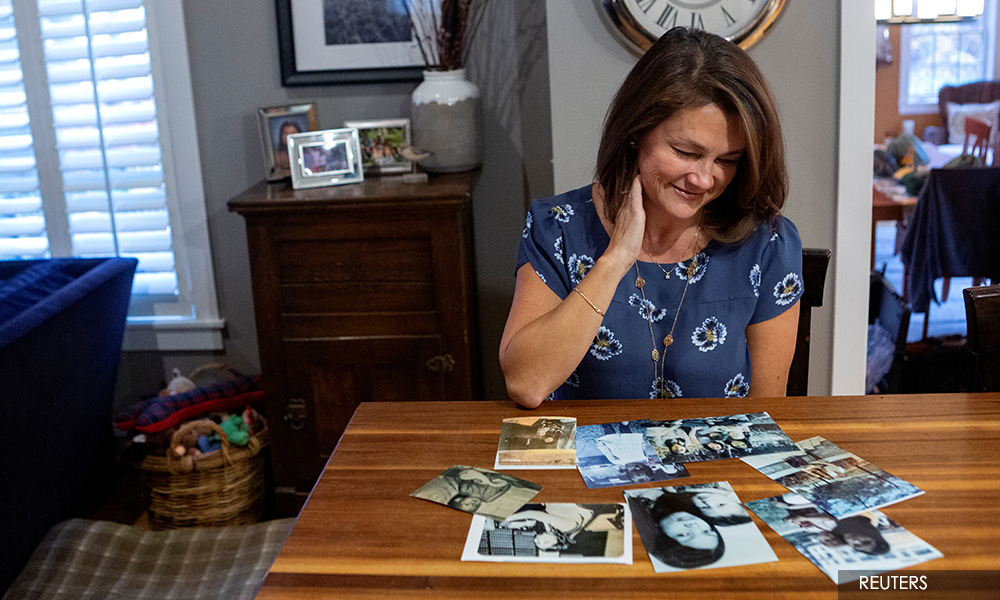
She enjoyed the good life Dep had hoped for her in a happy, middle-class home in New England with a sister and brother, also adopted.
“I always had a wonderful home and family life, so I just dealt with normal teenage stuff, not really stuff that was about my nationality,” she said.
Although she occasionally wondered about her mother growing up, it was only when she was 27 in 2000 that she thought of searching for her. She had just got married and knew she wanted to have children.
Leigh Mai and her adoptive mother, Mary Beth Boughton, went to Vietnam to begin the search. Their only clues were Leigh Mai’s Vietnamese name, the town she was born in, and the orphanage she was placed in ahead of Operation Babylift.
But the ledger book listing all those who had stayed at the orphanage in Thu Duc began only in May 1975, after the fall of Saigon and a month after Operation Babylift. “So we just concluded that everything kind of was destroyed or burned from when the communists finally arrived,” Leigh Mai said.
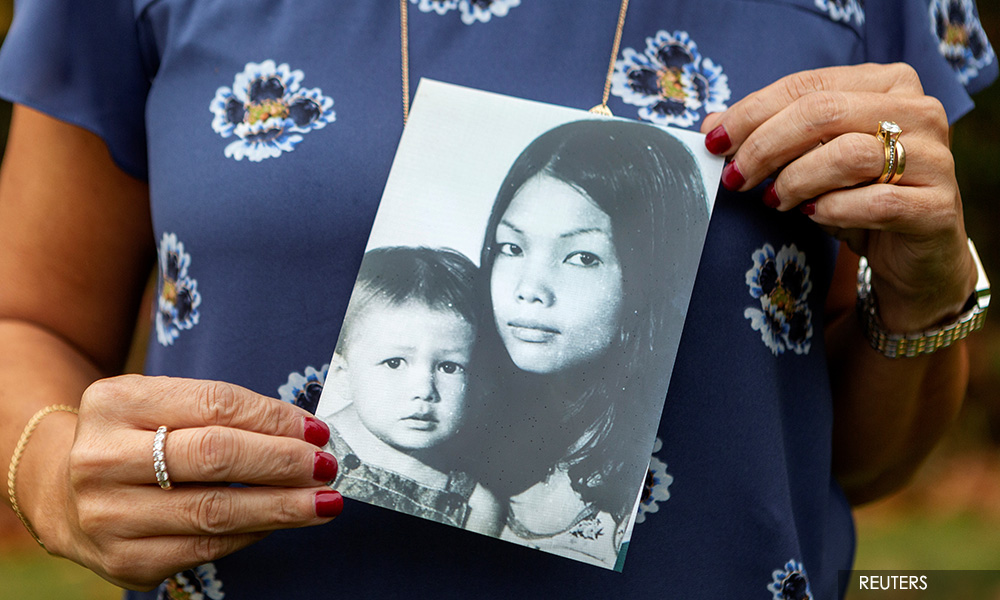
She gave up and the years passed. But then commercially available DNA websites offering to help people discover their heritage and family links began to take off. About four years ago, Leigh Mai submitted a DNA sample to ancestry.com, occasionally getting a connection to “a fifth cousin.”
Then in September 2019, Leigh received an email from ancestry.com telling her of a connection to a “sibling/first cousin.” Another email arrived that said: “I think you’re my sister. Your Vietnamese mother is looking for you.”
During an exchange of texts with the woman named Bonnie Ludlow, Leigh Mai learned they shared the same father - who had died in 2011 - but had different mothers. “And I think it just exploded from there,” Leigh Mai said.
They were helped by a 30-year-old Vietnamese man called Vu Le, who had read an article about Dep’s search for Leigh Mai and made it his mission to help her. He found Joe O’Neal’s obituary with Bonnie’s name, tracked Bonnie down, and told her about the half-sister she had never met.
Validated decision
For Dep, Leigh Mai was always a 3-year-old child. “Seeing her as this grown-up woman with a family, it isn’t as emotional as when I looked at her photos as a small baby,” she said after the reunion.
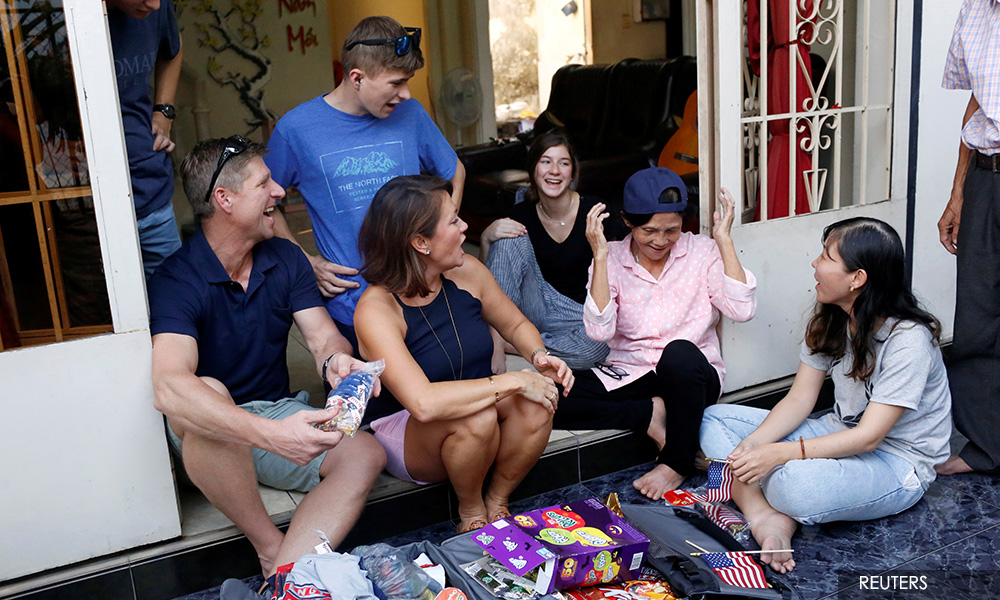
But the meeting did give her relief about her daughter’s life in America.
“I love her a lot and I am at ease because Mai has grown up, having her own family, can take care of her own self, as opposed to before when it was always ‘Is my baby still alive? If she is, what life does she have? I was worried she had it hard.”
Leigh Mai thought about bringing her birth mother back to the United States, but Dep prefers her simple life in Thu Duc. She still bikes to her job as a school janitor.
With technology, Leigh Mai thinks they can stay in touch.
“I want her to still be able to live through us through videos and big moments that kids are going to have in their life and that Jeff and I are going to have in our life.
“So I’m hoping that she can get into the iPhone,” Leigh said with a laugh.
- Reuters
RM12.50 / month
- Unlimited access to award-winning journalism
- Comment and share your opinions on all our articles
- Gift interesting stories to your friends
- Tax deductable
